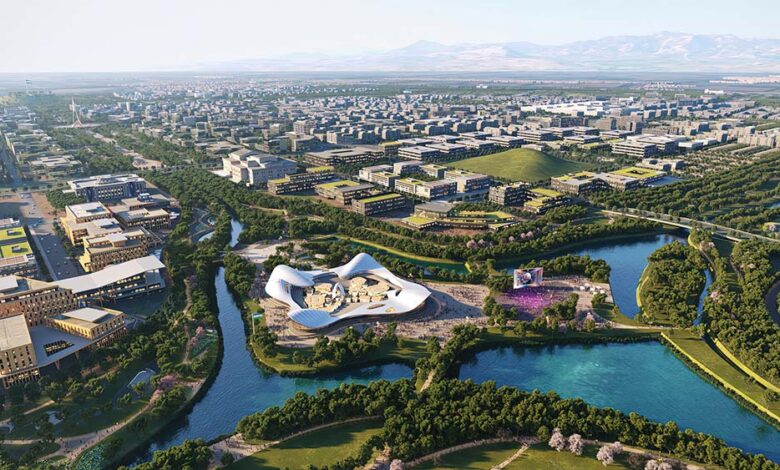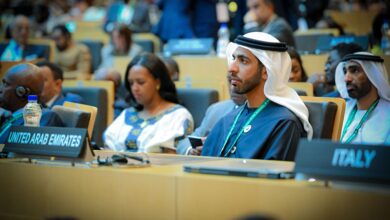Uzbekistan conquering new frontiers in the field of Smart City Planning And Territorial Development

By Tulaganov Baxrom Abdukabilovich
PhD, dotsent Toshkent arxitektura-qurilish universiteti rektori
The educational and scientific-technical cooperation between the Republic of Uzbekistan and Kuwait is strengthening year by year and expanding into new directions. Along with collaboration in traditional fields such as Arabic language and literature, Islamic studies, medicine, tourism, and economics, the two countries are now actively establishing cooperation in implementing “Smart City” projects. This is opening doors to new opportunities not only in the sphere of education and science but also in the realm of innovation and technology.
The implementation of large-scale projects for the collaborative establishment of modern scientific and technological complexes, business incubators, and startup accelerators in Uzbekistan, involving leading Kuwaiti manufacturers, is of crucial importance for developing and commercializing innovative ideas, inventions, and technologies. These initiatives play a significant role in enhancing the effectiveness of scientific research, improving the personnel training system, and introducing advanced technologies into strategic sectors of the economy.
In Uzbekistan, the role of science in the socio-economic development of regions is invaluable, and the implementation of the “Smart City” concept in this process is of strategic importance. Significant attention is being paid to enhancing the innovative potential of regions through scientific research and experimental design work, introducing digital technologies, and developing modern infrastructure.
The collaboration between higher education institutions and regions involves developing scientifically-based proposals for socio-economic development and implementing them in practice. This, in turn, enables the advancement of “Smart City” projects and the organization of effective management based on modern technologies and data analysis.
As a result of research and analysis conducted this year, the Ministry of Higher Education, Science and Innovation has developed hundreds of proposals aimed at increasing the socio-economic potential of the regions. Also, specific plans are being developed in such areas as the development of “Smart Mahalla” projects based on innovative technologies, the creation of a digital services platform, and the rational use of resources.
In the sphere of regional development, Uzbekistan is working on a number of projects based on the experience of cooperation with Kuwait. Kuwait has implemented several large-scale projects to create smart cities, which are mainly aimed at combining digital technologies and green infrastructure. Smart cities often rely on energy-efficient systems, solar panels, and energy-saving devices. For this reason, significant work has been done in Kuwait to effectively utilize renewable energy sources, especially solar energy.
Currently, the safety, environmental sustainability, and efficiency of cities remain among the most important factors for the comfortable life of people. Therefore, the “Smart City” concept has been developed in Uzbekistan, and experiments are being conducted to implement the project. At this point, the question may arise: why are “smart cities” needed?
Today, the population of the world is growing sharply. In such conditions, smart technologies play an important role in solving problems related to urbanization, improving the ecological environment, and ensuring safety. “Smart cities” not only solve a number of problems but also find solutions for them, for example: Traffic and transport problems in this case, controlling roads through artificial intelligence and reducing traffic jams, increasing the efficiency of public transport. In addition, smart surveillance cameras, analytical programs, and artificial intelligence play an important role in crime prevention. In addition, it can control the environment, that is, control air quality, develop directions in waste recycling and energy efficiency.
Through the digital management system, public services, urban infrastructure, and utility systems will be automated. As an example, we can take Kuwait city. The city of Kuwait is entirely controlled by smart security systems. This city has managed to ensure the safety and convenience of the population using artificial intelligence and IT technologies. Traffic is regulated, public places are under video surveillance, and emergencies are detected and promptly responded to through artificial intelligence.
A number of proposals have been submitted by the Tashkent University of Architecture and Civil Engineering for the implementation of a similar system in Uzbekistan. The university has engaged a group of specialists for the “Smart City” project, and experiments are being conducted on the project.
As a result of the experiment, specialists, relying on technologies, implemented the first stage of the “Smart City” project in an artificial intelligence system, that is, a systematized approximate view of the territory was developed, in which a digital control system and the use of solar energy were established. In addition, the project pays special attention to the installation of surveillance cameras, security systems, transport and parking lots, business centers, waste processing, energy efficiency, as well as the sustainable development of the green economy in order to safely protect the territories. Uzbekistan’s “Smart City” project is a big step towards sustainable urban management.
The New Tashkent project is expected to be one of the key stages in the development of smart cities in the country.












